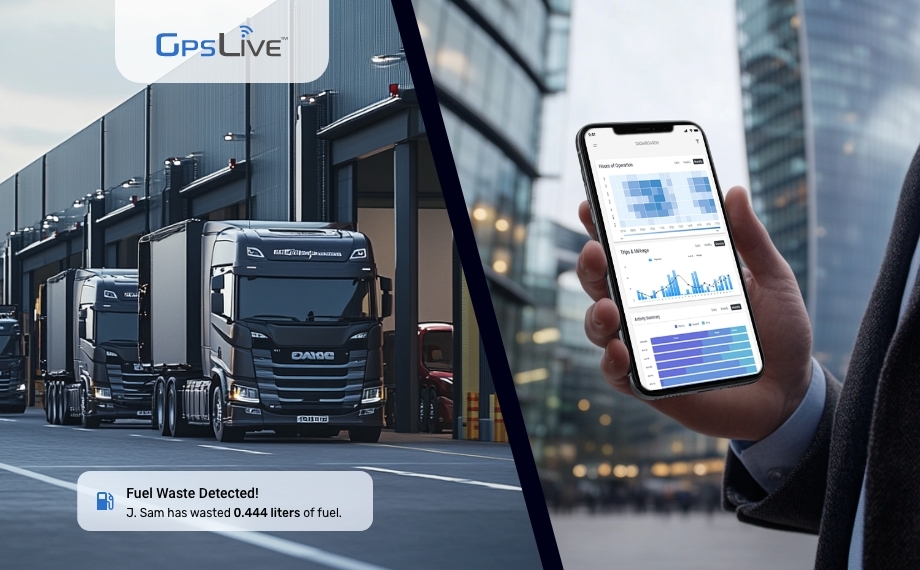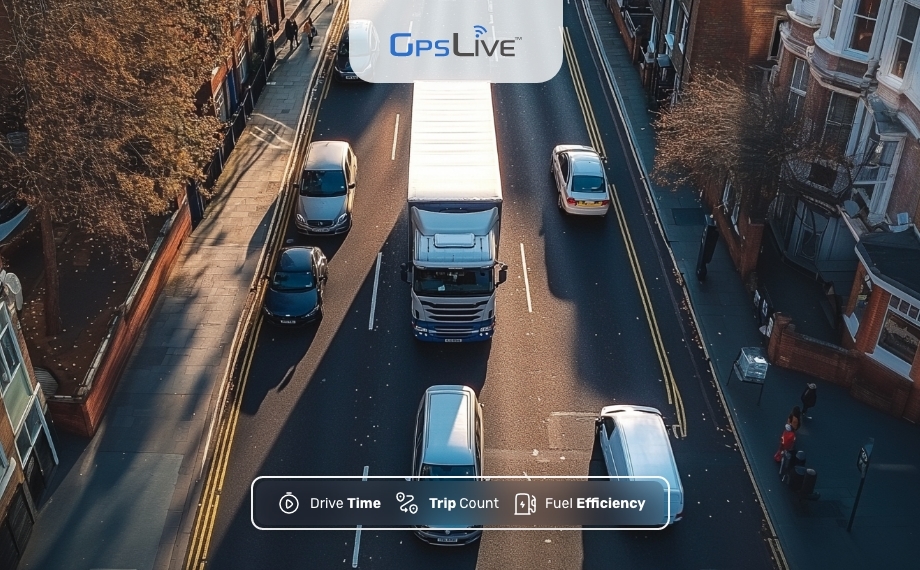Fuel prices reached all-time high numbers in 2022. War-like disruptions between Russia and Ukraine affected crude oil supply chains globally, snowballing oil prices like never before. The record-breaking average prices reached 191.5p per litre for petrol on July 3, 2022, and 199.09p per litre for diesel on June 25, 2022.
The commercial vehicle industry had to face a tough time adapting to this situation, adding to the plethora of challenges they already face on a daily basis.
Fuel costs account for around 60% of the fleet operating expenses. Besides rising fuel prices, fuel theft is also an ongoing concern. Britain witnessed an increase in fuel theft from filling stations in 2023. Around 39,563 incidents of fuel thefts were tracked between July and September 2023. According to the RAC foundation, fuel thefts can be accounted for due to the rise in “systematic criminal activity.”
Hence, fleet owners must constantly focus on keeping fuel costs as low as possible and preventing fuel thefts or idling. While fleet owners cannot influence fuel prices, they can manage fuel consumption across their fleets. Fleet managers must pinpoint areas where they can reduce fuel consumption to save costs. This implies tracking fuel usage and wastage to boost a fuel-efficient ecosystem.
However, tracking fuel consumption can be challenging for fleet managers responsible for routing, maintenance, customer service, and other tasks. A fleet tracking system can help fleet businesses improve fuel efficiency.
What is a Fleet Tracking System?
As the name suggests, a fleet tracking system monitors business operations in real-time. Utilising GPS technology and onboard diagnostics, tracking systems deliver real-time actionable insights for fleets. Managers can track fleet location, driver performance, fuel consumption, and other key metrics through a centralised monitoring system.

This comprehensive approach maximises data utilisation, enhances operational visibility, and improves overall efficiency for fleet owners. A sophisticated fleet tracking system offers invaluable support in addressing challenges such as rising fuel prices and ensuring smooth fleet operations.
Why Use a Fleet Tracking System for Fuel Management?
A fleet tracking system is essential for fuel management as it can help keep fuel costs low and enhance fleet efficiency. It monitors fuel usage and offers real-time notifications on fuel consumption, allowing fleet managers to promptly monitor usage patterns and identify inefficiencies. Let’s understand its role in detail.
Route Optimisation
Efficient route planning is crucial in logistics and transportation, directly impacting customer satisfaction and fuel expenses. Longer and congested routes increase vehicle idling and fuel usage, increasing fuel consumption and costs. Fleet tracking systems with GPS technology can help fleet managers set optimised and fuel-efficient routes.
They offer drivers notifications about on-road congestion, unexpected traffic, roadblocks, and other related information. Fleet tracking systems then reroute drivers by suggesting the most efficient alternative route, ultimately enhancing vehicle and driver productivity while conserving fuel.
Additionally, they can dispatch the nearest driver to the job site using the real-time location of vehicles, saving fuel and improving customer service.
Fuel Theft Prevention
Fleet tracking solutions are a vital tool to prevent fuel theft as they offer valuable insights into fuel usage, enabling managers to monitor each vehicle’s consumption per trip. Real-time GPS tracking pinpoints the vehicle’s and fuel pump’s locations during refuelling. Inconsistencies between these coordinates raise red flags, alerting managers to potential fuel theft or unauthorised activities.
This level of visibility empowers fleet managers to detect suspicious behaviour that may otherwise go unnoticed. Additionally, the system notifies managers of unauthorised routes or trips, allowing for prompt action to eliminate inefficiencies and enhance overall productivity.
Sensor Data Monitoring
Cutting-edge fleet tracking solutions use smart sensor technology to measure the boot’s fuel, oil, temperature, humidity, and voltage levels. Fleet managers can also view in real time whether any vehicle’s doors are open or closed. They can review each vehicle’s action along the trip and report anything unusual. Sensor monitoring is critical in cold storage lorries, where an ideal temperature must be maintained.
Monitoring Driving Behaviour
Studies show that aggressive driving can reduce gas mileage on busy routes by approximately 10-40%, while highway routes may decrease by 15-30%, wasting between $0.25 to $1 per gallon. Additionally, excessive speeding can increase fuel consumption by 20%. Besides, vehicle idling can consume ½ gallon of fuel per hour.
Fleet tracking systems monitor driving behaviour in real-time and alert fleet authorities of excessive speeding, hard braking, or vehicle idling. They can also provide extra training to drivers regarding fuel consumption and driving skills and ensure responsible driving.
Drivers may sometimes misuse vehicles for unauthorised purposes during work hours. A telematics system promptly notifies managers of route deviations or extended idle periods. This enables fleet managers to promote safe driving practices, minimise fuel consumption, and optimise overall fleet efficiency.
Conclusion
Rewire Security’s fleet tracking system can help reduce fuel costs by 21% and improve overall productivity by 48%. These trackers can decrease fuel and vehicle maintenance expenses while contributing to environmental conservation and lowering insurance premiums. With rich data, you can enforce data-driven decision-making for day-to-day operations and run a fuel-efficient business.


